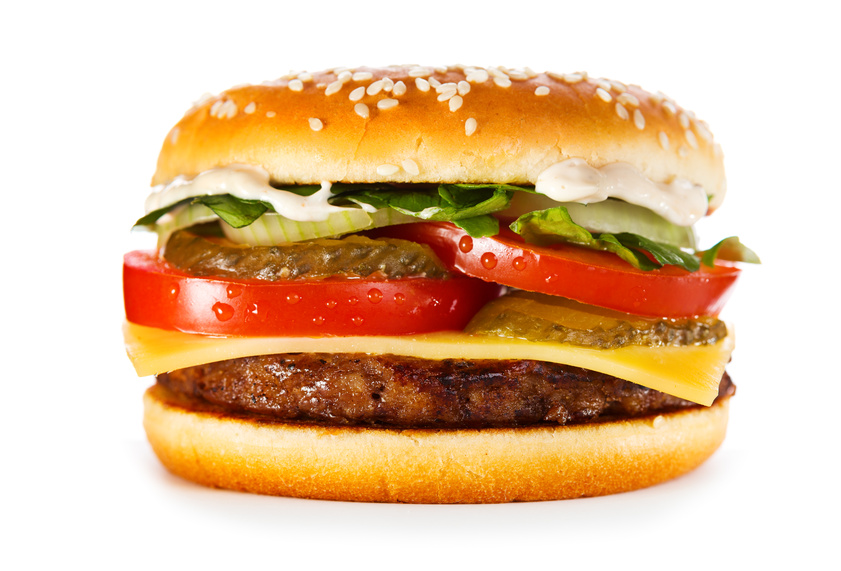Under French law a trademark is a distinguishing sign for a product or service which it represents. If it is no longer distinctive, meaning that it has for the public become the standard name for the given product or service, it is invalidated and is no longer assignable. This happened to the brands of pina colada (Commercial Cassation., 28 April 2004, case no.02-10505), Botox (Commercial Cassation., 27 January 2009, case no.07-13349), Vintage (CA Paris, 20 April 2005),caddie (Paris High Court, 29 October 1997), texto (Paris High Court, 29 January 2008), etc. which are now generic signs.
The companies QUICK and SODEBO also went to war over the name “GIANT”. QUICK which had registered the sign GIANT as its brand, complained that SODEBO was selling pizzas under the name of “Pizza GIANT”. However, SODEBO did not agree because seeing as the term was in used among the public, the sign GIANT had today become a generic sign for a large sized food item, and so the brand was therefore non-existent, to which QUICK naturally objected having invested in this name over the years and having sold many hamburgers in France under the name of GIANT: Love GIANT, GIANT Max, GIANT Max Country, etc.
But in the view of the judges the exhibits of the debate did not prove that despite the successive ranges of burgers from QUICK, the French consumer perceived the GIANT as a real brand and not just as a large sized hamburger. The same problem arises when a work is also a brand, or when a brand is also the name of a famous author, the fact that the work or the name are famous the world over does not prove the ‘notoriety’ of the brand.
In respect of the use of English which, in France, one would have thought would contribute to the distinctiveness, the judges considered that this didn’t in its own right make the GIANT brand distinctive, because due to the resemblance of the word GIANT “to the French adjective “géant” it is very easily understood by the French consumer who is used to English words (…) in the context of fast-food originating from English speaking countries”.
Whatever one’s opinions, GIANT would now appear to be a generic term for large sized food items. An appeal will certainly be lodged against this decision of the 1st instance and we doubtless haven’t heard the end of this story.
Decision: Paris High Court, 24 October 2013, RG no.12/10515 (Download)
—
Boris Khalvadjian – Avocat à la cour- PARIS
Spécialisé dans la Culture, Communication, Divertissement, Production TV et Cinéma, Publicité, Production numérique, Jeu-vidéo, Design, Mode, Œuvres d’art, Musique, Édition littéraire, Photographie, Presse (vie privée, image, diffamation), Spectacle vivant, Sport.
Droit d’auteur, propriété intellectuelle, littéraire, artistique, droit de la musique. Rédaction de contrats d’artistes, d’édition, de production, de coproduction de management, de licence de distribution. Conseil en négociation et rédaction de contrats d’artistes, gestion de contentieux, rupture de contrats, non-respect de contrats, violations de droits d’auteurs ou droits voisins, de plagiat et de contrefaçon, gestion des litiges pouvant naître entre les acteurs de la création.
Droit des marques, propriété Intellectuelle, brevets, dessins et modèles, recherches d’antériorité, dépôt, consultation, stratégie de marque, propriété industrielle, contrefaçon, concurrence déloyale, originalité.
Droit de l’informatique, droit de l’internet, créations du web et du multimédia, applications numériques, nouvelles technologies, réseaux sociaux, Facebook, responsabilité des acteurs de l’Internet, contrefaçons sur Internet, contentieux des noms de domaine, protection des données personnelles,
Droit de la vie privée.
Droit de l’industrie cinématographique, vidéographique & des films publicitaires, droit à l’image, marché de l’art, professionnels du marché de l’art, artistes, collectionneurs ou amateurs, droit de l’art, circulation et conservation du bien culturel.
